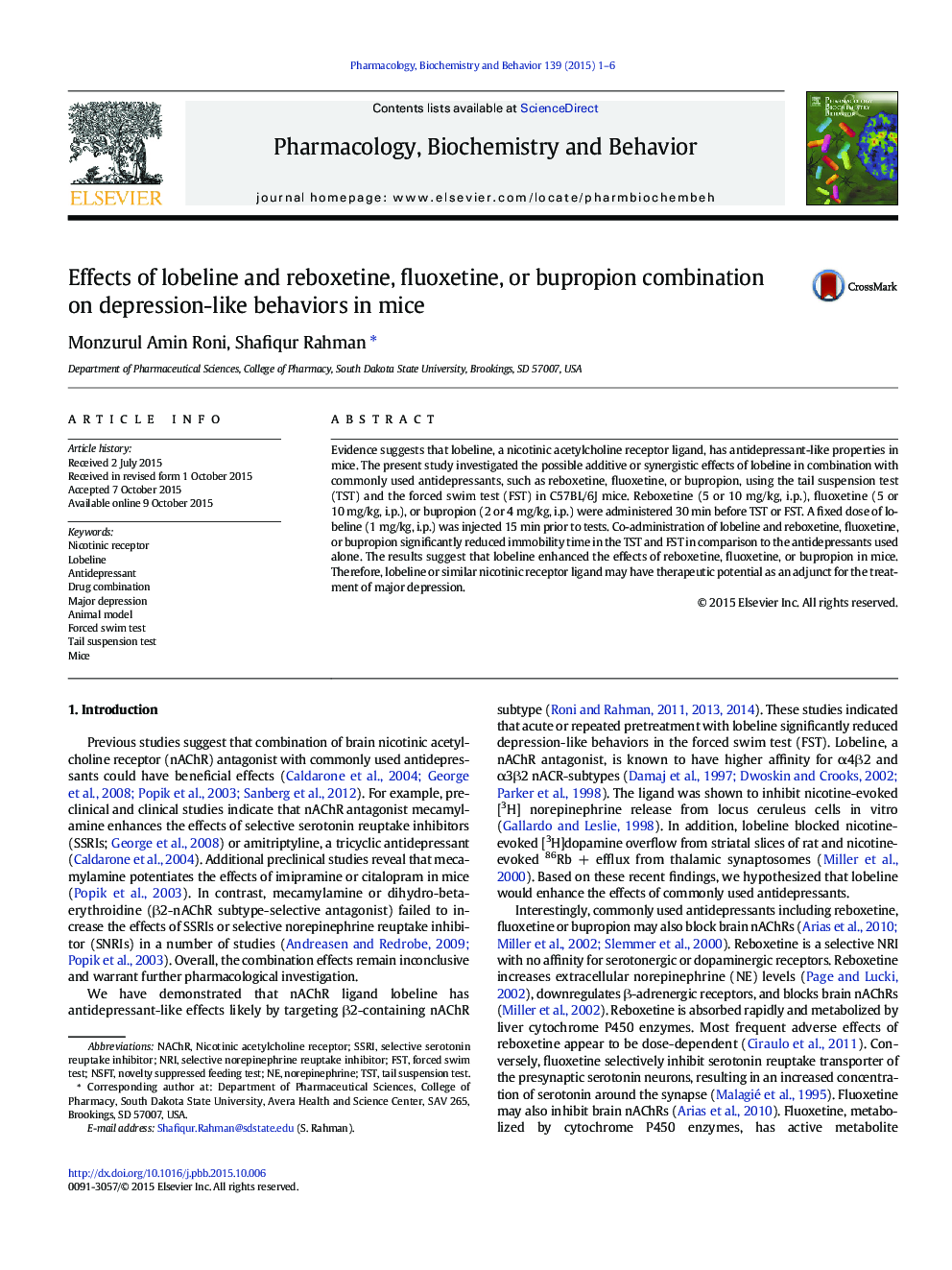| Article ID | Journal | Published Year | Pages | File Type |
|---|---|---|---|---|
| 2012688 | Pharmacology Biochemistry and Behavior | 2015 | 6 Pages |
•Nicotinic receptor antagonist lobeline has antidepressant-like effects in mice.•Lobeline (1 mg/kg) enhanced the effects of reboxetine (5 or 10 mg/kg).•Lobeline (1 mg/kg) enhanced the effects of fluoxetine (5 or 10 mg/kg).•Lobeline (1 mg/kg) enhanced the effects of bupropion (2 mg/kg).
Evidence suggests that lobeline, a nicotinic acetylcholine receptor ligand, has antidepressant-like properties in mice. The present study investigated the possible additive or synergistic effects of lobeline in combination with commonly used antidepressants, such as reboxetine, fluoxetine, or bupropion, using the tail suspension test (TST) and the forced swim test (FST) in C57BL/6J mice. Reboxetine (5 or 10 mg/kg, i.p.), fluoxetine (5 or 10 mg/kg, i.p.), or bupropion (2 or 4 mg/kg, i.p.) were administered 30 min before TST or FST. A fixed dose of lobeline (1 mg/kg, i.p.) was injected 15 min prior to tests. Co-administration of lobeline and reboxetine, fluoxetine, or bupropion significantly reduced immobility time in the TST and FST in comparison to the antidepressants used alone. The results suggest that lobeline enhanced the effects of reboxetine, fluoxetine, or bupropion in mice. Therefore, lobeline or similar nicotinic receptor ligand may have therapeutic potential as an adjunct for the treatment of major depression.
